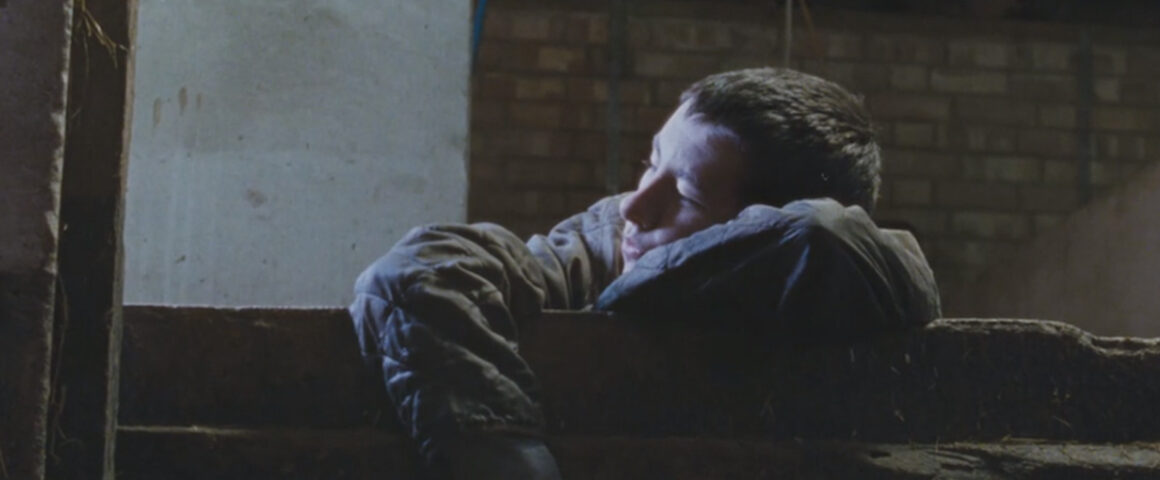The laser-like focus afforded by a compact running time is used to intensely impactful use in Phil Sheerin’s North, a 20-minute short about a teen boy wrestling with the inevitability of his ailing mother’s impending death. It’s rough subject matter, bleak and tragic, the kind of thing that would tempt many filmmakers to tug at heartstrings, to over-dramatize with cinematic flourishes. But Sheerin resists such urges, instead taking an unflinchingly unsentimental look at the situation.
He places us directly in the center of the emotional maelstrom that is the final hours of Mary’s (Emer McCourt, “Sunset Heights”) life. We meet her as she is, a bed-ridden mother preparing for an end to her pain caused by the disease that’s rotting her insides. It’s horrible and sad and yet McCourt brings such warmth and sweetness to her limited scenes that we can glimpse the happier days when she was healthy without Sheerin needing to resort to flashbacks.
The director’s faith in his actors is paramount here. He trusts that the small cast (just five family members with remotely prominent parts) will be able to contribute to the texture of the piece with only a select few scenes and mere minutes of screen time. Sheerin also needs the actors to define their characters in a state of grief and frustration. There’s no room in North for anything but the interactions that link directly to Mary’s passing, so the actors are given no moments of levity to more sharply develop their characters.
We know these people only for this short period of time and requiring the performers to remain entirely in that dark space of aching grief for the entirety of the picture can put a great burden on the cast. But with Sheerin taking a stylistically muted approach to the visual presentation, the movie homes in on the emotional experience so precisely and poignantly because the actors are so powerfully convincing.
That’s not to say that North isn’t sumptuously photographed. It certainly has some striking imagery. Sheerin’s best move is a general staple, though. When the emotion of a scene reaches its peak, he pulls in for the close-up. Simple stuff, really, just two faces in the frame, but the actors sell it beautifully. The key player here is Barry Keoghan (“’71”), who plays Mary’s heartbroken son Aaron.
In their rural home, young Aaron is feeling particularly alone as he nears the point of having to say goodbye to his mom. It doesn’t help that he finds himself at odds with his relatives who have come to bid Mary farewell and are now occupying much of her final moments and ruining the sanctity of Aaron’s last hours with her. The relatives aren’t the most likable bunch, but Sheerin keeps them human and never threatens to turn them into misguided monsters. They want to do what’s best for Mary and that their actions pit Aaron against them speaks to the complexities of the situation. We’re not forced to take sides and the conflict is not reduced to a debate about who’s right.
Still, this is ultimately Aaron’s story and Keoghan carries the emotional load exquisitely. He has a lot of hurt and anger to communicate and he does so without any hint of histrionics. His is a subtle, lived-in performance and it’s rather amazing to watch a young actor accomplish so much with such understated facial expressions and minimal dialogue.
Without the raw humanism of Keoghan’s performance, North would crumble. Instead, it’s a robust work that puts us in its characters’ shoes and trusts that its tight focus will make the intimate small-scale drama strike a meaningful chord. Sheerin isn’t interested in a post-mortem here. He simply wants us to feel the emotion of the moment, to share that with the characters and then leave them be. It’s a benefit of the close-up approach and the condensed running time that the experience is such a lean one and all the more moving for it. Death is the focus, but North is quite touchingly teeming with life.




'Movie Review: North (2014)' has no comments